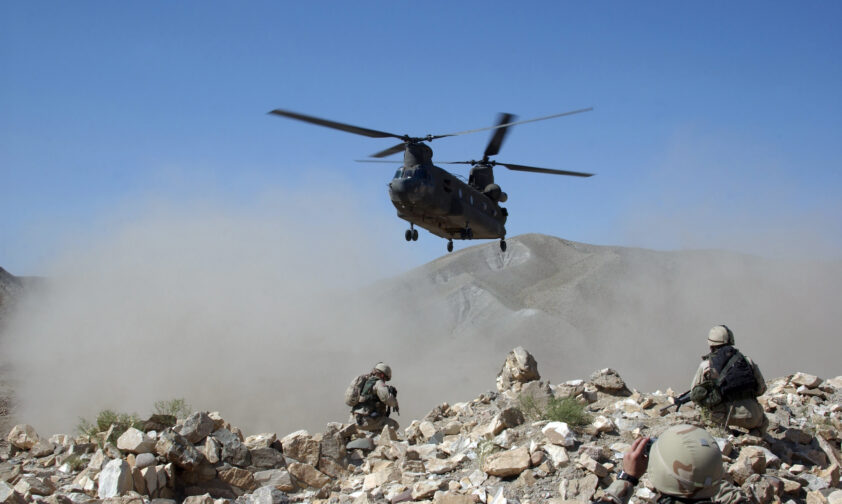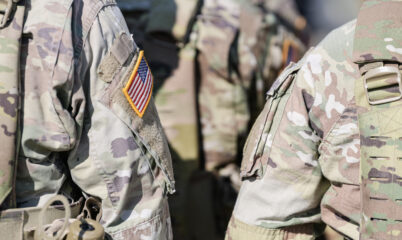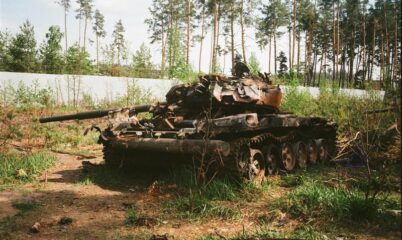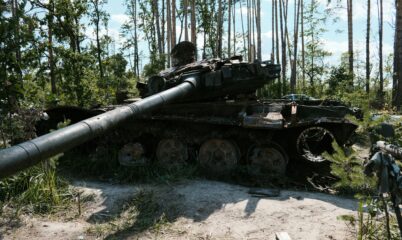
After tours in Iraq and Afghanistan, this Army medic sees why endless wars aren’t working
In 2005, Danny Medoff was deciding which direction his life should take. He spent a few years in college, but realized it wasn’t right for him, at least not at the time.
As decisions about school and work loomed, Danny would watch the news, particularly the reports from Iraq and Afghanistan, where U.S. troops were still in their early years of war. His eyes were always drawn to words scrolling at the bottom of the screen, reporting the numbers killed or wounded in both countries.
“I had some sense of responsibility or connection,” Danny says of his inspiration for joining the military. “Most of the type of people serving over there looked like me and were about my age. … I kind of felt a calling or a sense of duty.”
That sense of duty drove Danny to enlist in the Army as a health care specialist, or medic. Within a year of completing basic training, Danny received orders and headed out on his first deployment. He was attached to a unit out of Fort Bragg and served in a Green Zone hospital in Baghdad, Iraq.
‘I consider myself lucky’
Danny’s first deployment forced him to hit the ground running. He was confronted with some of the worst scenes of the war in Iraq. “I witnessed and experienced a lot of death, pain, suffering, blood,” Danny recalls. “In the face of that horror, it seemed every day [it] was worth questioning why we were there.”
Danny’s yearlong deployment was extended to last 15 months as the United States prepared for a surge of troops into Iraq following the execution of Saddam Hussein.
Five years after his time in Iraq, Danny deployed again, on a nine-month stint in the Kandahar region of Afghanistan. He arrived after the death of Osama bin Laden.
By the time Danny deployed to Afghanistan, the original U.S. goals had long since been accomplished. Core al-Qaida had been all but wiped out in response to the September 11, 2001, attacks. The Taliban had been punished for providing al-Qaida a haven in the first place. Across the border in Pakistan, bin Laden had been hunted down and killed.
But still combat continued and Danny’s medical services were needed.
The conflict Danny saw varied from small engagements to heavy combat as his unit moved into an area known as the birthplace of the Taliban. “I consider myself lucky, I’m very grateful,” Danny says of being able to steer clear of potentially fatal situations.
‘Most people could take us or leave us’
Danny recounts that there were a lot of mixed feelings about being in Afghanistan, both while he was there and afterward. “As a medic, being able to offer care and services to people who’ve never received any kind of care. Or even offering to help a local community build a school. Those were times I thought, wow, that makes me feel good,” Danny remembers. “But realistically, overwhelmingly, I often felt like as much good as we had to offer, it always came down to whether the people really wanted us there. It felt like most people could take us or leave us.”
The U.S. mission has changed since the war in Afghanistan started. What was originally a response to attacks on our country has turned into nation building in a country whose citizens and leaders have very different precepts about the purpose and role of government. Expecting Afghans to want to adopt our own has proven short-sighted.
“If we’re going to go offer our services somewhere, especially somewhere with such complex societal relations, if we’re going to go inspire change,” Danny says, “then the almost 20 years we’ve already been there might not even be long enough to expect that kind of change.”
Again, in Danny’s words, it all comes down to whether the Afghan people wanted us there. No amount of time will be sufficient for nation-building if a society doesn’t want to be rebuilt in our image. That’s why it’s time to get out of Afghanistan.
Giving back
Danny’s journey back into civilian life was not an easy one.
After returning home from Afghanistan, Danny struggled with substance abuse issues and was discharged from the Army. For the first few years after his discharge, Danny remembers feeling lost and in “a pretty dark place.”
“I was still staying away from the veteran community, all things military really,” Danny recalls. “I felt ashamed at how I left [the military] and my feelings of failure.” But connecting with the veteran community was exactly what Danny needed to find a new purpose and passion in life.
Danny re-enrolled in college in Colorado and got involved with the campus veterans center. The facility and activities enticed Danny to where he felt comfortable connecting with veterans again. He started working in veterans services while in college, focusing on building relationships and healing after deployment experiences.
Danny now lives in Seattle and continues his involvement with the local veteran community. “I’m really passionate about giving back to other veterans who need help,” Danny says of his work. “I’m seeing too many veterans, who’ve served in conflict or not, feeling lost, hopeless, traumatized, depressed, anxious and are upset or scared. I’ve also seen the resilience, courage, strength, compassion, and wisdom that my brother and sister veterans have to share with the world. Seems the endless wars just overburden our ability to heal.”
Nearly two decades of war have left thousands of our troops dead and millions more coming home with both visible and invisible wounds and scars. It is time we form a new approach to our nation’s foreign policy, for the sake of those who served.
Do you agree it’s time to withdraw troops from Afghanistan? Tell Washington now.




